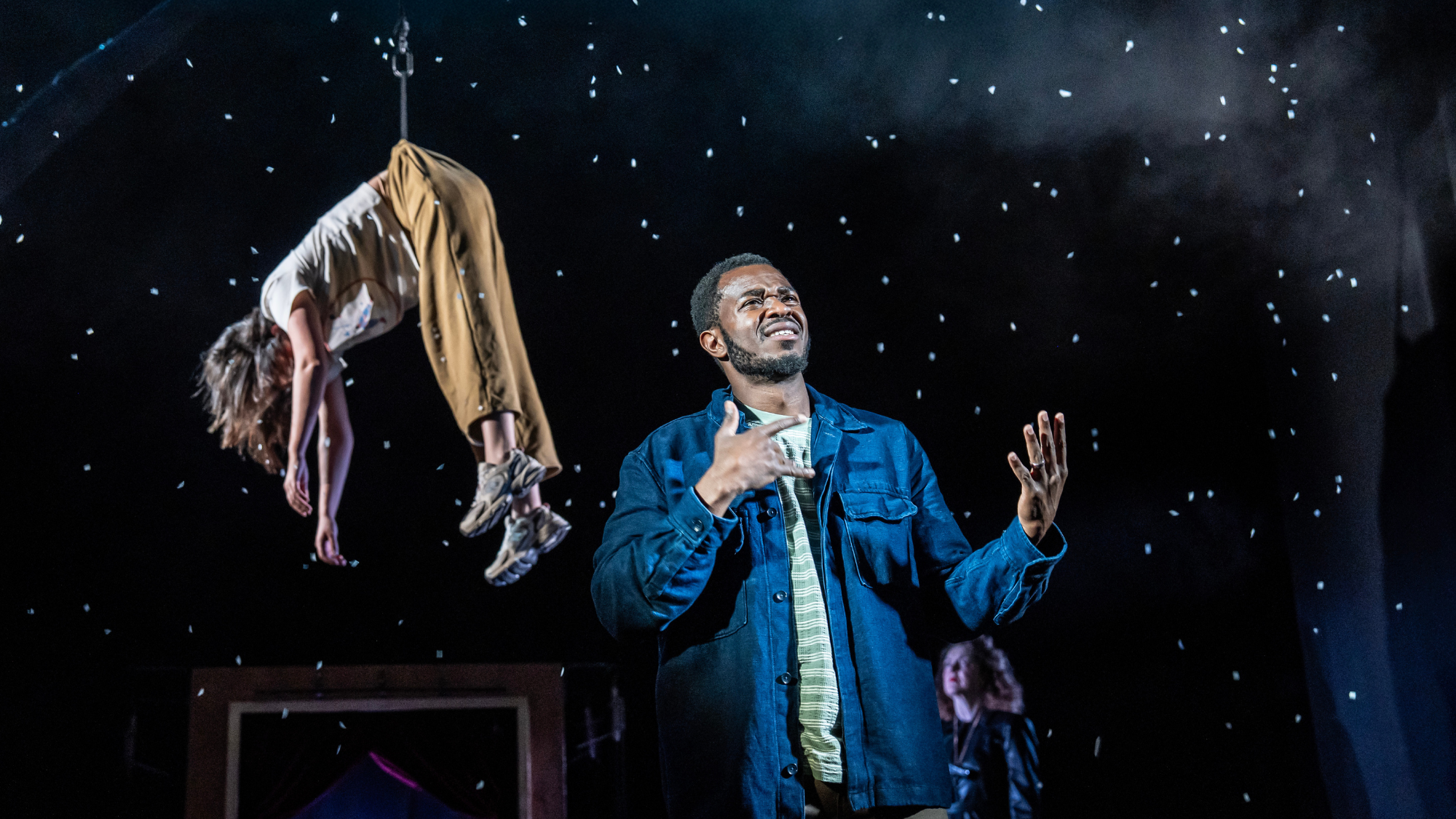Deaf Republic: ‘an experimental epic of war and resistance’
Ukrainian-American poet Ilya Kaminsky’s collection is brought to the stage in this ‘enthralling’ production

A free daily email with the biggest news stories of the day – and the best features from TheWeek.com
You are now subscribed
Your newsletter sign-up was successful
This adaptation of Ilya Kaminsky’s poetry collection is “every bit as urgent, humane and moving as the book that inspired it”, said Sarah Hemming in the Financial Times.
Dublin-based theatre company Dead Centre has joined forces with the sign language poet Zoë McWhinney to “deftly” bring the Ukrainian-American writer’s work to the stage. In a “smartly mischievous” opening, deaf actor Romel Belcher introduces Caoimhe Coburn Gray as his interpreter to help make the show “accessible” for hearing audiences.
Set in Vasenka, a fictional occupied city, the narrative stems from a tragic wartime atrocity: a deaf boy is shot and killed by a soldier for failing to follow a command that he couldn’t hear while watching a puppet show. In an act of solidarity, the entire town turns deaf overnight. The sign language peppered throughout Kaminsky’s original collection “takes on living form as an ensemble of deaf and hearing actors” in this “richly textured” production, slipping between British Sign Language, surtitles and spoken dialogue.
The Week
Escape your echo chamber. Get the facts behind the news, plus analysis from multiple perspectives.

Sign up for The Week's Free Newsletters
From our morning news briefing to a weekly Good News Newsletter, get the best of The Week delivered directly to your inbox.
From our morning news briefing to a weekly Good News Newsletter, get the best of The Week delivered directly to your inbox.
It’s a “wondrous two hours of storytelling that renders the Russian invasion of Ukraine both enchantingly strange and newly shocking”, said Claire Allfree in The Telegraph. The “stylistically thrilling” production weaves together a “feast of theatrical techniques” from acrobatics to live cinema.
Describing something as a “waking nightmare” would usually be a “straightforwardly bad thing”, said Alice Saville in The Independent. But there isn’t anything straightforward about this “unsettling, enthralling” show. An “experimental epic of war and resistance”, it’s a production that will make you “rub your eyes and reach desperately for something real to hold on to”.
“Is it possible, though, to create a fully engaging narrative out of poems that are so full of ambiguity and ambivalence?” said Clive Davis in The Times. There are moments when the production has “more of the static quality of an art installation” than theatre, and it could shave 20 minutes off its running time. The “highly stylised” effects can also start to feel “gimmicky”, said Theo Bosanquet on WhatsOnStage, and the play “struggles to tie its disparate ideas together”.
Overall, though, it’s a powerful piece of theatre that is both “playful” and “provocative”, said Hemming. “The audience, sitting there in silence, can be seen as part of the resistance. But lack of action can also be seen as a failing.”
A free daily email with the biggest news stories of the day – and the best features from TheWeek.com
Until 13 September at Royal Court Theatre, London; then 2-5 October at Samuel Beckett Theatre, Dublin
Irenie Forshaw is the features editor at The Week, covering arts, culture and travel. She began her career in journalism at Leeds University, where she wrote for the student newspaper, The Gryphon, before working at The Guardian and The New Statesman Group. Irenie then became a senior writer at Elite Traveler, where she oversaw The Experts column.
-
 Political cartoons for February 21
Political cartoons for February 21Cartoons Saturday’s political cartoons include consequences, secrets, and more
-
 Crisis in Cuba: a ‘golden opportunity’ for Washington?
Crisis in Cuba: a ‘golden opportunity’ for Washington?Talking Point The Trump administration is applying the pressure, and with Latin America swinging to the right, Havana is becoming more ‘politically isolated’
-
 5 thoroughly redacted cartoons about Pam Bondi protecting predators
5 thoroughly redacted cartoons about Pam Bondi protecting predatorsCartoons Artists take on the real victim, types of protection, and more